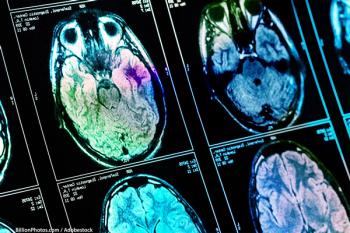
Investigating Burnout and Career Satisfaction Among Neuro-Oncologists
Caring for patients with brain tumors can have marked effects on the well-being of oncology clinicians, frequently leading to burnout, and authors of an ongoing survey study aim to get a clearer picture of those impacts.
Caring for patients with brain tumors can have marked effects on the well-being of oncology clinicians, frequently leading to burnout, and authors of an ongoing survey study aim to get a clearer picture of those impacts, they reported at the 21st Annual Scientific
Barbara O’Brien, MD, Shlomit Yust-Katz, MD, and Alvina Acquaye, MS, of the University of Texas MD Anderson Cancer Center in Houston, spoke about the ongoing study and its preliminary findings.
Professional burnout is a “psychological syndrome” involving emotional exhaustion, cynicism or depersonalization, and loss of a sense of meaning and effectiveness with one’s work.
“It can have profound personal consequences-anxiety, depression, alcohol and substance abuse, broken relationships, and suicide,” noted Dr. O’Brien. “It can also have professional consequences, including error rates and early retirement.”
A substantial number of physicians report burnout symptoms, she noted: 46% of US physicians surveyed report symptoms, and rates are highest among “front-line” clinicians who provide patient care, like general practitioners, pediatricians, and emergency room doctors, Dr. O’Brien said. In the United Kingdom, more than one-third of physicians report at least one symptom of professional burnout.
“Burnout is particularly relevant for those caring for patients with cancer,” Dr. O’Brien noted. “There is often inadequate or limited support for expressing emotions or what we call ‘professional grieving.’”
The risk among neuro-oncology clinicians might be higher still, the researchers believe. Caring for patients with brain tumors can be meaningful and fulfilling-but it can also be “uniquely challenging,” Dr. O’Brien said. Patient prognosis tends to be relatively poor, and brain tumors’ impacts on patient quality of life can be difficult to manage.
The research team therefore seeks to determine burnout rates and career satisfaction among professionals involved in brain cancer-related patient care, using an anonymous international survey. The Neuro-Oncology Burnout and Career Satisfaction Survey study involves an adapted Maslach Burnout Inventory and involves three general scales: (1) emotional exhaustion (feelings of emotional overextension and work-related exhaustion); (2) depersonalization (a loss of empathy or increased impersonal interactions); and (3) a sense of personal accomplishment and professional competence.
Surveys are still being sent out, and the research team urged neuro-oncology professionals to complete the questionnaire. Participation requires 10 to 15 minutes and is completed using a tablet computer or iPhone.
Thus far, a total of 324 SNO members have completed the survey; 30% reported current symptoms of burnout and 45% reported having experienced burnout symptoms previously. Just over half of survey participants (53%) have been female and most thus far have been from the US and Canada.
The survey’s preliminary results suggest that 76% of neuro-oncology clinicians work more than 50 hours a week and 40% spend more than 10 hours a week on administrative tasks. Almost all (95%) continue to work from home.
Respondents reported very high levels of stress, although administrative issues appear to underlie much of that stress. Patient care was reported as the most satisfying aspect of respondents’ careers.
Fewer than half of respondents feel that their income is adequate, given their level of time and effort.
The survey results thus far have also revealed reason for concern for respondents’ health and lifestyle. Most respondents get less than the National Sleep Foundation’s recommended 7 to 9 hours per night of sleep, for example. Nearly one-third reported no hobbies.
The final analysis will also include diet, alcohol consumption, and exercise patterns, and will estimate the prevalence of burnout in neuro-oncology, and identify associated risk factors.
Newsletter
Stay up to date on recent advances in the multidisciplinary approach to cancer.




































